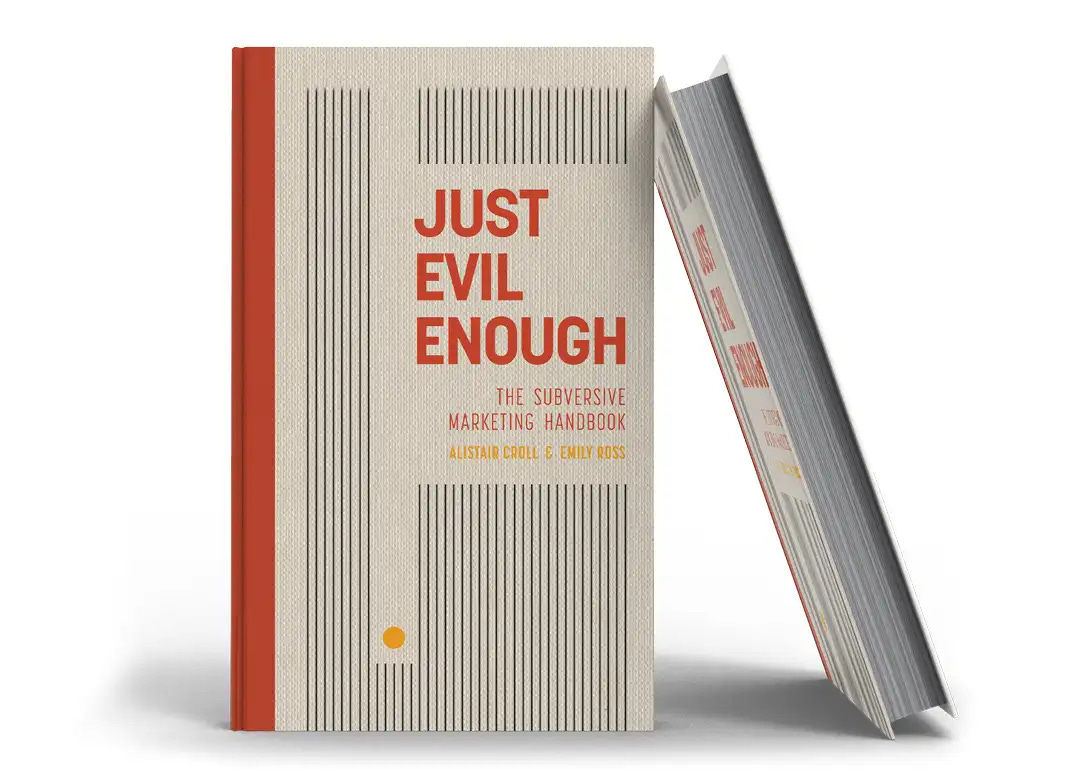The Best Is Yet to Come
My final company, living in the moment, inspiring founders & other ramblings... (#87)
Who wants to talk about product roadmaps? 🙋🏻♀️ 🙋🏽♂️
You do?!?! Fantastic!
➡️ I’ve launched a Product Roadmap Survey and hoping you’ll complete it.
My goal is to collect tons of information on product roadmaps (how people use them, prioritize things, what they like, don’t like, etc.), synthesize the results & share through the newsletter.
✅ If you’re involved in product building, please complete the survey!
✅ Please share the survey with others! 🙏
I recently spoke to a group of students doing an Entrepreneurship Master’s degree at Technische Hochschule Ingolstadt (THI) in Germany. They have a class on Lean Analytics (which is cool and a bit strange for me at the same time!) The instructor wanted to do an AMA (“ask me anything”) session. I assumed they’d want to ask tactical or technical questions about Lean Analytics, but most of the questions were about my career and life. It got me thinking…
I don’t spend a lot of time reflecting on the past. What’s done is done. We can learn from the past, but I don’t like living there. It’s easy to get caught.
Shortly after the AMA, I saw this video of NVIDIA CEO, Jensen Huang, talking about why he doesn’t wear a watch:
OK, dude. Settle down. I also don’t wear a watch. But it’s because I find it annoying when typing…
The sentiment of not looking into the past or too far into the future is interesting. I believe in winning through execution in the present, although a bit of strategy or direction isn’t a bad thing! 😀
Living in the past, off previous successes, can lead people to rest on their laurels, losing their motivation or ambition to achieve more. Living in the future encourages people to take minimal action, it’s mostly pontificating about what could be, with no attempt to get there or change it.
The answer isn’t just “do stuff.” A lot of people work very hard and don’t get far. They’re doing a bunch, completing tasks on their todo list, but not making real progress. Work for work’s sake is not winning.
Push comes to shove, I’ve always believed in getting shit done. I’d rather make progress at a tactical level than spend a ton of time strategizing, or worse, imagining the future. The future will be here fast enough…
Turning 50 This Year
Yup, that’s right. I’m 50 this year. Holy crap. 😱
I’m not dwelling on it, but I can’t ignore it either. There’s no imminent midlife crisis coming (as far as I know!) but 50 is a decently sized number. I have fewer working years ahead of me than behind me, and a lot left to do.
One of the THI students asked me if I felt my career had peaked, given past successes, or if I still believed I would achieve even more going forward.
I was surprised and mildly offended by the question. 😂
Don’t put me out to pasture just yet!
I told the students that the best is yet to come…
I’ve Started My Last Company
Highline Beta is my last startup. I reserve the right to change my mind, but today that’s how I feel. There is too much potential in what we’re building as a venture studio and venture capital firm. After 8 years we’ve only scratched the surface, but we see the future more clearly than ever before and tactically have plans for getting there.
If you’re interested in learning more about venture studios, here’s a good primer: What is a Venture Studio?
I also write extensively about them to dig in further.
Highline Beta has many elements that I find interesting & rewarding:
It’s successful but also very challenging. (We went through plenty of rough patches too.)
It’s changing and evolving regularly. In some cases this has been chaotic, scary and unplanned, in other cases we’ve pivoted properly.
We’ve got a small, high-performing team. I don’t want to spend most of my time managing people (I’m also not good at it). I want everyone working hard, executing effectively, creating value and winning together.
We’re innovating at the edges of what it takes to repeatably and successfully build & fund startups and corporate ventures (lots of trial & error, learning, etc.) Running into the fog is scary, but fun too.
I can focus on building one thing (Highline Beta), while simultaneously work on many things (the portfolio). I enjoy the dichotomy and frequent context shifting.
I’m doing Highline Beta because I think we’re going to win really big—bigger than everything else I’ve done combined.
As you get older, opportunity costs increase dramatically. I’m not trying to drop crazy ol’ grandpa wisdom, but facts are facts. We’re all going to die (at least for the foreseeable future, until the longevity people win), and the older you get, the closer you get to the end. Time feels like it speeds up as you age. It’s science. 🔬
The students asked me a number of challenging questions, including:
“Who has inspired you the most?”
“What was the most pivotal moment in your career?”
“What advice would you give us as we begin our careers?”
Damn. (There were no softball questions!)
Who Has Inspired Me the Most?
I don’t like talking about my personal life (despite this somewhat personal post, with minimal practical value to it). So I didn’t have a great answer. I partially bailed on the question. Since I thought we would be talking about Lean Analytics, I said Steve Blank. Steve wrote a book, Four Steps to the Epiphany, and I swear it was written just for me (it wasn’t). When I read the book, I was coming out of a failed startup, Standout Jobs (you can read all about my failures here), and every piece of advice made perfect sense. I kept saying to myself, “I should have done that, and that, and that, and that.” Wow.
It turns out you can learn things from books! Although I still believe practical experience is more valuable.
Reflecting on the question, I should have said, “founders.” Founders inspire me, because they jump off a cliff without a parachute to create something that doesn’t yet exist. It’s brave, a touch crazy, and awesome.
We need more founders and that’s what I told the students. Too many people spend all their time learning by reading or taking courses, not by doing. They’re stacking skills and knowledge with the goal of someday doing something (like starting a company). Maybe that’s the smart and logical way of doing it…or…or…or…you could just go do it.
What Was the Most Pivotal Moment in Your Career?
There are many:
Meeting 3 entrepreneurs in 1996 that wanted to start a web services agency. I was in university, somewhat technical and thought, “that sounds cool.” I fell into entrepreneurship and as they say, the rest is history. 😊
Starting my first blog in 2006. I decided to “put myself out there” and began blogging in the early days. I got into the WordPress community and met tons of great people. Wrote almost 1000 posts. Everything that happened after that is partially a result of blogging. ✍🏼
Meeting Austin Hill and Fred Ngo in the Montreal startup ecosystem. I decided to help with various tech events in the city and met the eventual partners of Standout Jobs. Austin was a huge inspiration (as a successful entrepreneur) and an angel investor. Fred was my co-founder, and we fought together for 2+ years to build the company. 🥷
Starting Year One Labs with Raymond Luk, Alistair Croll and Ian Rae. We built and funded 5 startups, one of which was Localmind that was acquired by Airbnb. We learned a ton, generated insane returns and helped quite a few people kick off amazing careers. 🏆
Writing Lean Analytics. The book was published in 2013 and people are still getting value from it today. That’s awesome. 📕
Joining GoInstant and moving my family to Halifax. GoInstant was quickly acquired by Salesforce. That was life changing. 💰
Deciding to start Highline Beta. 📈
Here’s the key: None of this was planned. At all. Everything was through serendipity and putting myself out there, whether through writing or in-person.
I’m sure it’s possible to plan your whole career, especially within large organizations. I definitely did not do that.
So what should you do? Put yourself out there. Create content and make it available. Help people. Put good stuff into the world and you’ll get many times over the value. (h/t to Dan Martell who recently said this in a video).
Pre-order Just Evil Enough — a new book by Alistair Croll and Emily Ross
My Lean Analytics co-author is publishing a new book, and you should get it. The book is all about subversive marketing. It’s chock full of case studies, tools, data and ideas on how to market your business/product/service/whatever.
Alistair absolutely gives more than he gets. Just Evil Enough is no different (although you should buy the book and not steal it!)
What Advice Would You Give Us As We Start Our Careers?
Stop wasting time. I’m not suggesting the Master’s program is a waste of time, but time is precious. I don’t want people to panic. We all need down time. But analysis paralysis is real and crippling. I’m meeting a lot of people these days that are career planning to the max, instead of taking a few leaps ahead.
Start a company. You’ll never know everything or feel fully confident about it, so today is just as good a day to start as tomorrow. I don’t think everyone should start a company, but if you’re in a program about entrepreneurship…
Don’t be naive. You’re probably familiar with the phrase, “If you love what you do, you’ll never work a day in your life.” Total bullshit. Work is fucking hard, emotionally draining and stressful. Life itself is one giant, borderline uncontrollable rollercoaster—you expect work to be easy breezy? Get on with it already.
I recognize that 3rd point makes me sound like a grumpy old timer that doesn’t appreciate work-life balance, people’s individual circumstances, etc. That’s not true at all. At the same time, I don’t believe we should sugarcoat things. Life is hard. I hate seeing smart, creative, good people putzing around on stuff that doesn’t matter. I’m determined to not waste time. And win. You should be too.







Your book has indeed helped a lot of people, and has reached farther than you realize. Last summer I was at my parent's house in Boston, and saw your book on my father's shelf. He's a retired tech CEO and founder of a tech incubator there (CENE) and I asked 'How did you come to get this book?' and he said 'oh, it's pretty standard issue for startups.' So congratulations on becoming required reading!